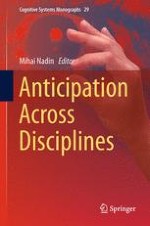2016 | OriginalPaper | Chapter
Anticipatory Behavior of Software Agents in Self-organizing Negotiations
Authors : Jan Ole Berndt, Otthein Herzog
Published in: Anticipation Across Disciplines
Publisher: Springer International Publishing
Activate our intelligent search to find suitable subject content or patents.
Select sections of text to find matching patents with Artificial Intelligence. powered by
Select sections of text to find additional relevant content using AI-assisted search. powered by
